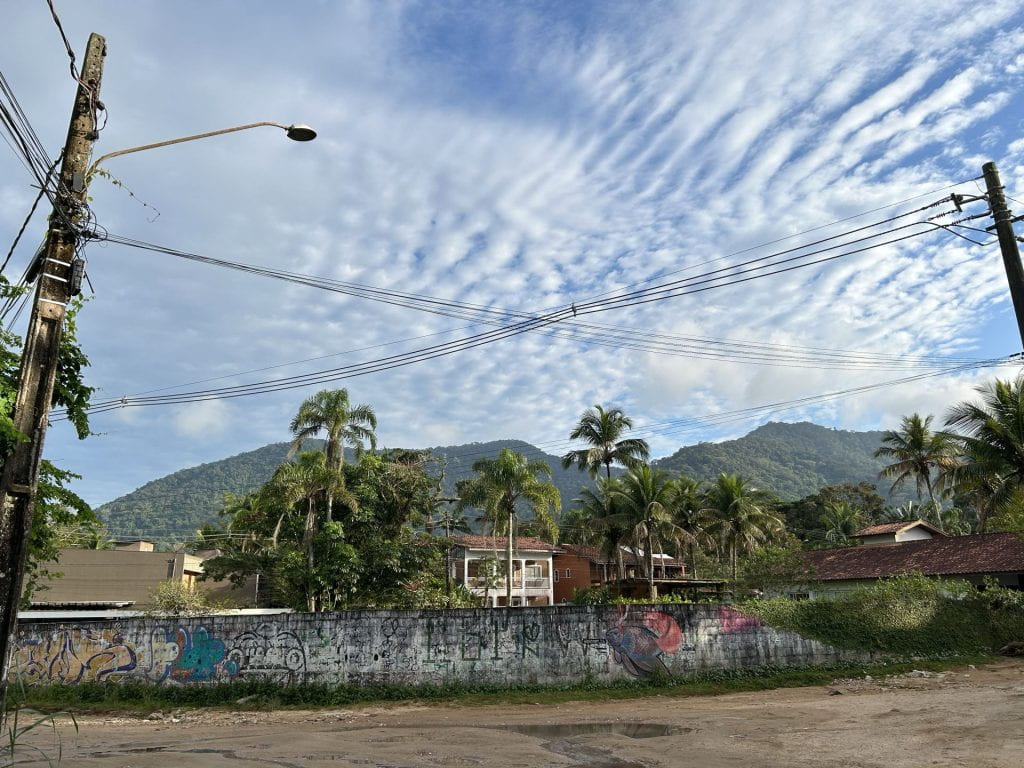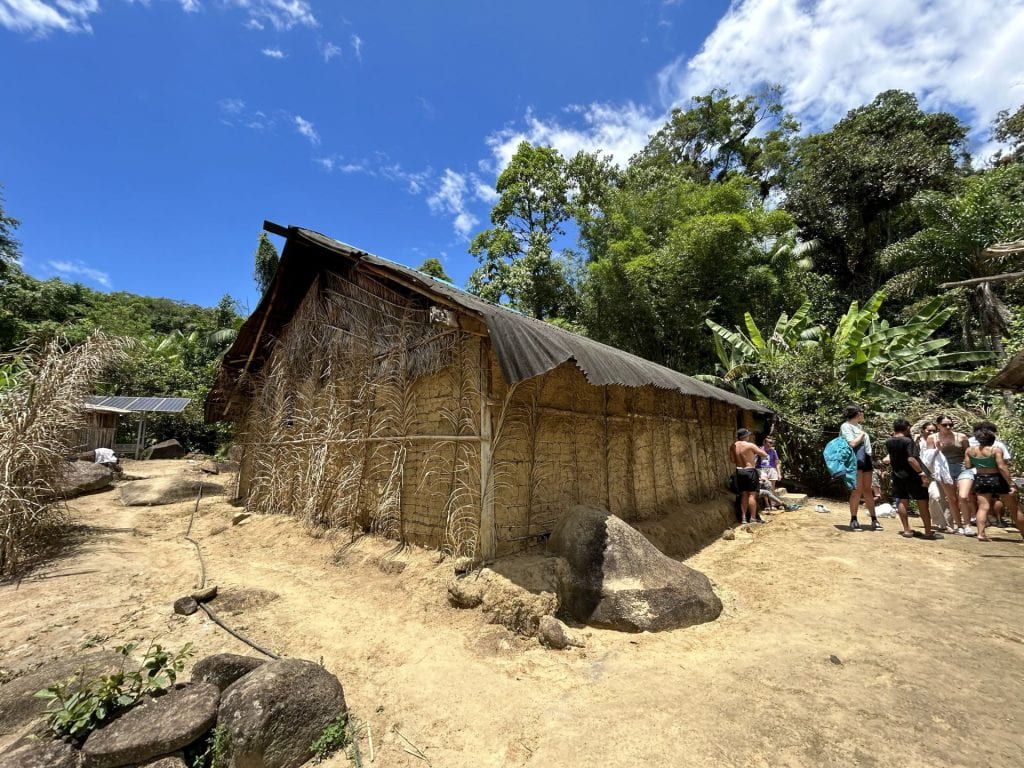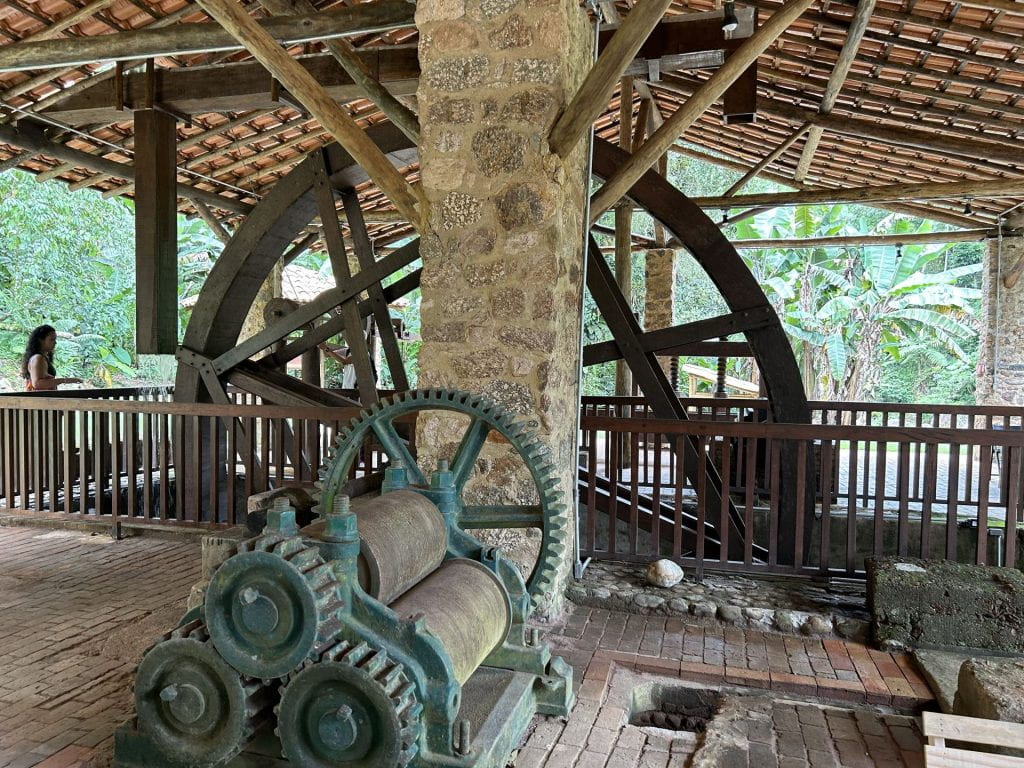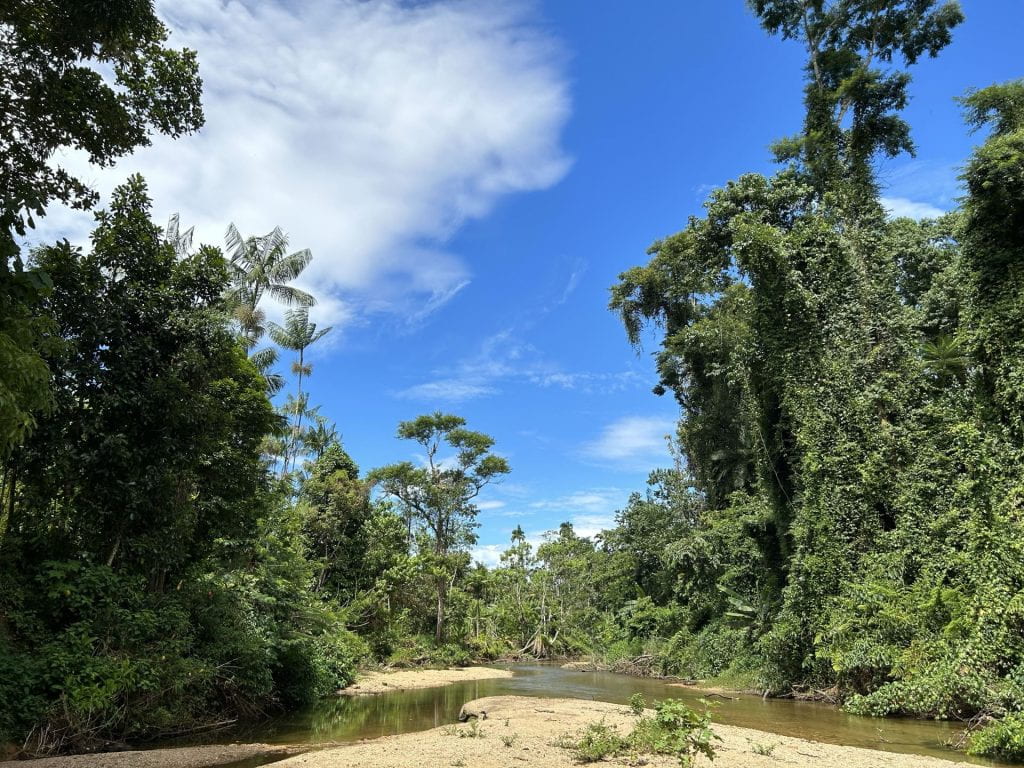After eight days in São Paulo, we travelled to Ubatuba, a coastal town about four hours away, by bus. While in Ubatuba, we had free time to relax and enjoy the beaches. We were also privileged to visit two local communities during this time.

Our first visit was to the Boa Vista Indigenous community. This community is home to 40 families of the Guarani tribe. We reached the community after a 30-minute walk on a gorgeous trail through the Atlantic Forest. We were welcomed into their traditional meeting house, and a leader shared elements of their history and contemporary lifestyle. We were also offered the opportunity to receive traditional markings in semi-permanent ink. It was an immense privilege to walk on their whenua, hear their language (which is spoken by the entire community), and share in their cultural practices.

Our second community visit was to the Quilombo da Fazenda. Quilombos have a long history in Brazil as places of safety and community for those escaping slavery. Many in Quilombos actively worked to oppose slavery, often helping those still enslaved to find freedom. After 300 years, slavery was finally abolished in Brazil in 1888, making it the last Western country to do so. Quilombos today are often located in similar areas as their historical sites, with many working to secure rights to their traditional lands. While visiting the Quilombo da Fazenda, we were shown how the community has restored biodiversity from monocultural farmlands and maintained traditional processes of milling cassava flour.

These visits gave me a deeper appreciation of freedom, safety and independence. These communities are highly autonomous, drawing on and preserving traditional knowledge while incorporating contemporary adaptations where useful. They had deep connections to their environments and their histories. I am deeply grateful to have had the opportunity to visit these communities. I know I will carry these lessons and this new perspective with me in my future work.

